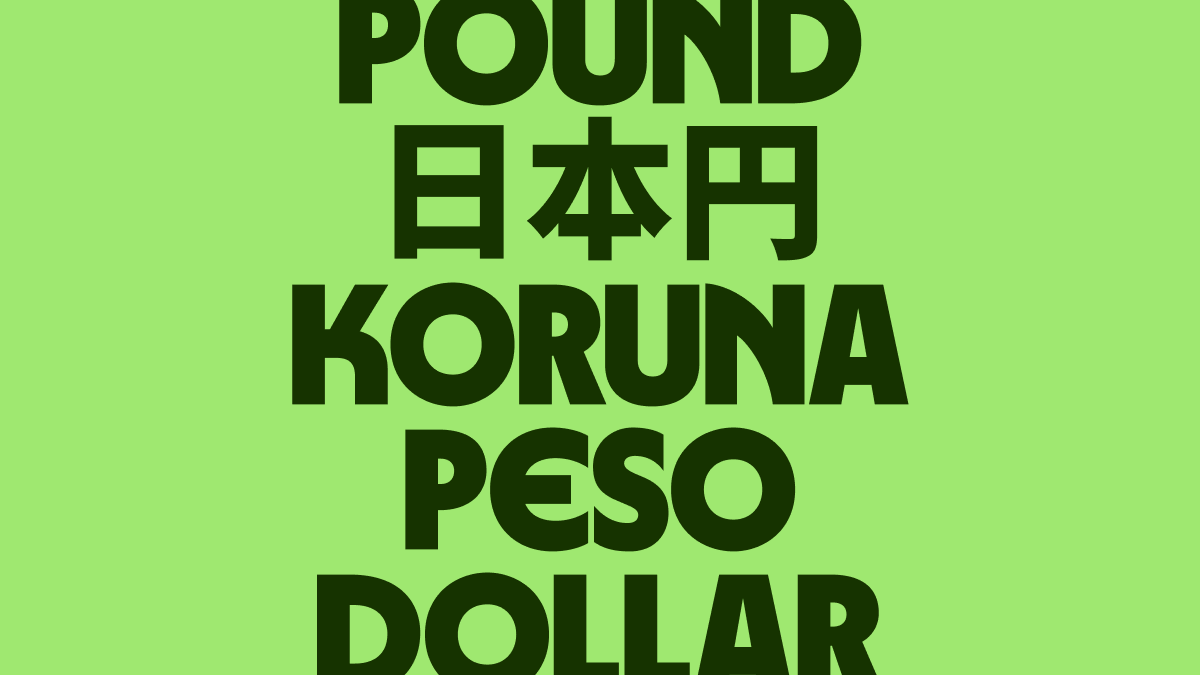What is a pacs.008 message? ISO 20022 guide
Find out everything you need to know about the pacs.008 message.

Any time you send money abroad, or travel abroad and need to change some of your home currency into the local currency, you should be paying close attention to the interbank rate between the two.
Why? It’s the key to getting the best deal on a currency exchange.
For example, most banks and currency exchange services will offer you exchange rates with a hidden premium, while services like Wise give you the interbank rate, just as you see it on Google, plus a small fee.
If you’re unsure what the interbank exchange rate is, or how to get it, read to find out everything you need to know.
The interbank exchange rate has its name because it’s the rate that banks use when they’re trading large amounts of foreign currencies with one another. The interbank rate is also called the mid-market rate, the spot rate, or the real exchange rate.
Unfortunately, this rate is pretty much always reserved for big banks and Wall Street big shots trading currencies in huge quantities, which means the average person making a smaller money transfer is far more likely to be offered a marked-up rate so the service making the exchange can make a profit.

The interbank rate exists in the United States because regulators require all banks maintain a minimum amount of cash in their reserves for customer withdrawals.
In order to maintain this liquidity, financial institutions will borrow from each other if they're experiencing a shortfall, or lend to each other in order to earn interest on their excess reserves.
The interest they earn from this short-term lending is based on the interbank rate, which is also known as the federal funds rate, or overnight rate.
Despite its name, the federal funds rate isn't set by the Federal Reserve, but it is based on the discount rate, which the Federal Reserve sets.
Setting a low federal funds rate encourages borrowing and lending between banks, while a high rate has the opposite effect.
While these rates are exclusively available to financial institutions who are borrowing and lending amongst each other, these rates are reflected in consumer products; if you need to exchange one currency for another, the exchange rate will be based on the interbank rate, with an additional premium.
| Need to make a business payment? Pay international vendors and bills at the real mid-market rate, for up to 19x cheaper than PayPal. | |
|---|---|
| Discover Wise Business today |
If you Google the current exchange rate of a currency pair, the interbank rate is what you’ll see. You can also check services like XE to see what the interbank rate is at any given time, keeping in mind that it can fluctuate by the minute depending on various factors – but more on that below.

The interbank exchange rate is found by taking the midpoint between the buy and sell rates for a currency on the open market.
There are also generally different rates depending on whether you’re buying or selling a currency. These prices, called the bid-ask spread, are set by brokers, who generally set the selling price a small fraction of a unit higher than the buying price, meaning they can make more money off currency conversions.
However, when you’re sending money abroad, the interbank rate is the closest to a true exchange rate at any given time. Any deviation is often an inflated retail rate, usually with a profit built in for the bank or exchange service providing you with the exchange.
The interbank exchange rate can fluctuate at any time, based on a number of factors, including:
Armed with the basics, you can calculate an exchange rate yourself when you see a rate pair. But what helps the most to find if you’re getting a good deal is to compare the rate you’re offered to the real, interbank rate. You can do that with a quick Google search or by using an online currency converter.
In short, yes. If you’re letting a bank, credit card, or exchange service do your currency exchanges, you’re likely not getting the interbank rate, which means you may be paying a hefty markup on every transaction.
On average, banks can mark up an exchange rate by 4-6%. Those costs add up fast, and can have a major effect on your wallet if you make international transactions regularly.
You want to get a rate as close as possible to the interbank rate to avoid losing too much money in fees, but it’s tough to get the interbank rate from retail establishments, which is why services like Wise are a popular alternative.

Wise allows users to transfer money internationally at the exact interbank exchange rate. All it costs is a small, fair transfer fee that’s spelled out before the transfer is made, which means no hidden costs or markups. It’s fast, safe, and you save up 6x on your currency exchanges compared to well-known banks.
Since beginning as a money transfer platform, Wise now offers borderless multi-currency accounts with debit cards and world-class business accounts to its 3 million global customers (and counting). Try it today to see how Wise works and can help you save while you manage your money without borders.
*Please see terms of use and product availability for your region or visit Wise fees and pricing for the most up to date pricing and fee information.
This publication is provided for general information purposes and does not constitute legal, tax or other professional advice from Wise Payments Limited or its subsidiaries and its affiliates, and it is not intended as a substitute for obtaining advice from a financial advisor or any other professional.
We make no representations, warranties or guarantees, whether expressed or implied, that the content in the publication is accurate, complete or up to date.

Find out everything you need to know about the pacs.008 message.

Learn how taxes on selling inherited property work as an American – from step-up basis to capital gains, timelines, deductions, and filing tips.

Understand taxes on selling rental property as an American – capital gains, depreciation recapture, exclusions, timelines, and filing tips to reduce your bill.

What is the 90 day rule on Airbnb? Learn all about rules and restrictions for using your London-based property to make passive income with short-term rentals.

Have a look at our guide that covers how to manage your Airbnb remotely, from automating the check-in process all the way to handling local regulations.

How much do Airbnb property managers charge? Here's an in-depth overview to find out all about the management fees and charges that might arise.